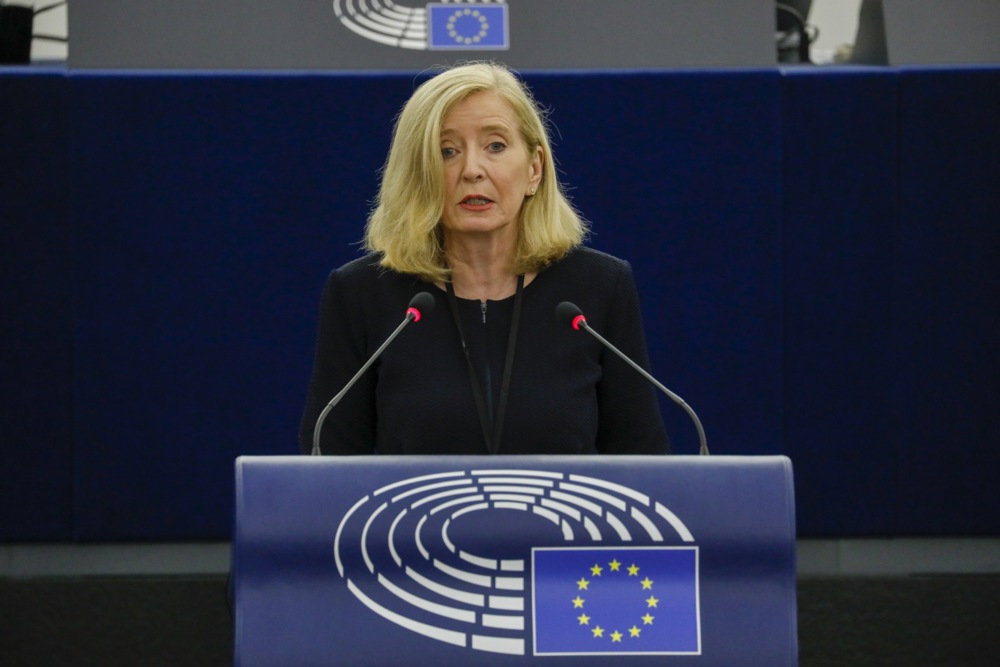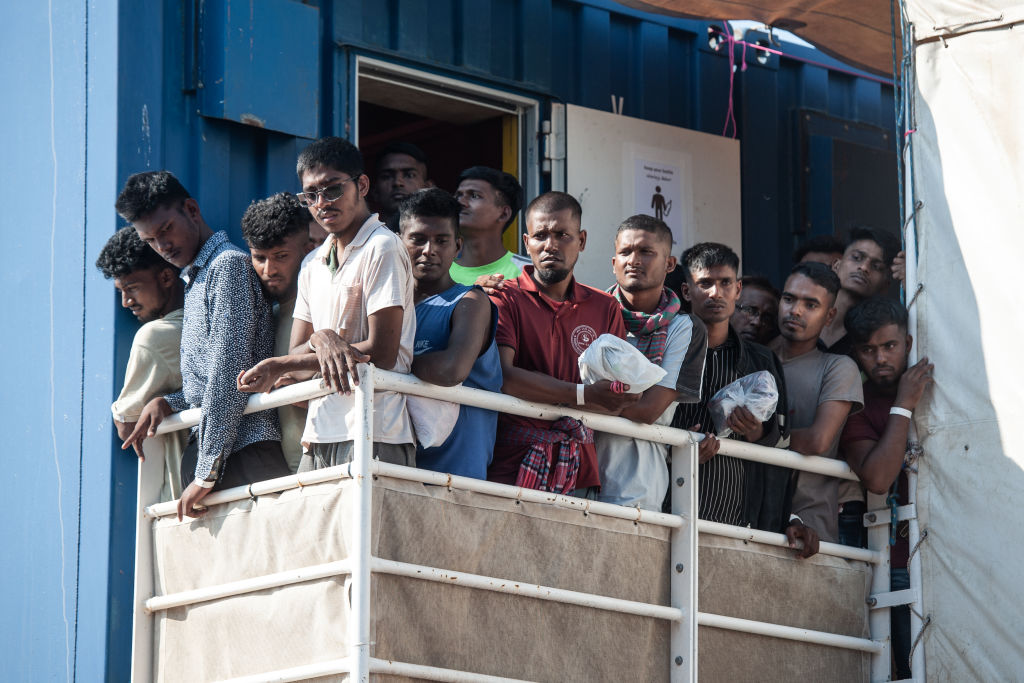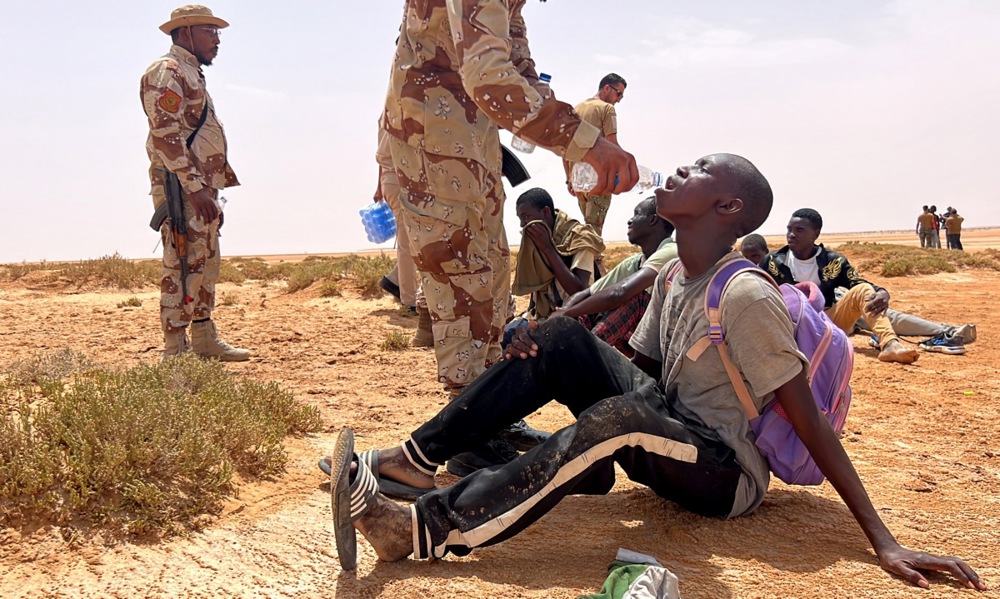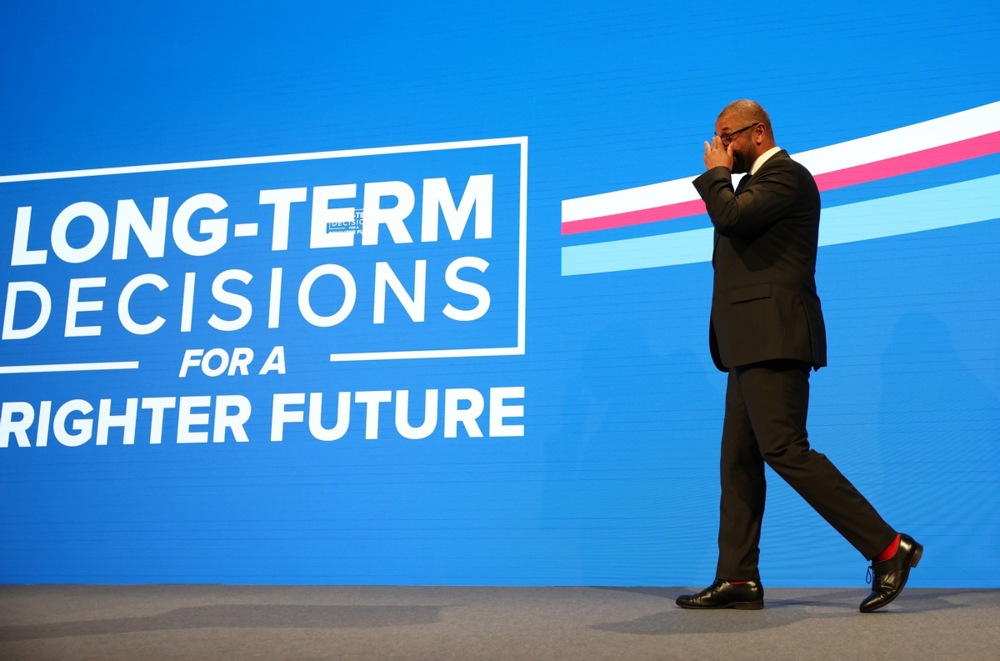European plans to curb the mass influx of migrants coming from Tunisia have suffered a major setback as Tunisian President Kais Saied rejected financial support from the European Union.
“Tunisia, which accepts cooperation, does not accept anything that resembles charity or favour, because our country and our people do not want compassion and do not accept it if it is disrespectful,” Saied said late on October 2.
“As a result, Tunisia rejects what the EU has announced in recent days.”
He added that his country was “doing everything possible to dismantle the criminal networks that traffic people”.
“Tunisia rejects what the EU announced, not because of the small amount … but because the proposal conflicts with the Memorandum of Understanding [MoU] signed in July,”
Saied said it did not correspond to “the spirit” of the agreement. The “small amount” refers to €127 million in aid to Tunisia as part of the Migration Pact with the EU.
Recently, the European Commission announced €60 million would be made available to Tunisia. In addition, a package worth around €67 million aimed at strengthening Tunisia’s capacities to combat human traffickers and tighten border controls would be disbursed. The MoU between Tunisia and the EU allows for direct aid of another €150 million in 2023.
It is part of a bigger deal, worth €1 billion, designed to enable Tunisia to become a reliable EU partner with a stable economy and government that could effectively fight illegal immigration.
Tunisia has struggled to handle its public finances, with some fearing Tunis will not be able to pay its foreign debts in the near future.
At the same time, images and video’s of what appear to be flagrant human-rights violations have been shared, casting a large shadow over the agreement with Europe.
Exemplifying its troubles, last week Tunis delayed a visit by an EC group to review the terms of the migration deal.
Just days ago, the Tunisian minister of foreign affairs Othman Jerandi said: “Tunisia cannot act as a gendarme whose mission is to protect the borders of others. It can only defend its borders, its frontiers.”
Tunisia also rejected admission to five members of the European Parliament’s foreign affairs committee last month for talks on the political situation in the country, stating that it would not tolerate what it called foreign intervention in its affairs.
Tunisia, along with Libya, are the main starting points for African migrants seeking to cross the Mediterranean to the EU, with Italy receiving most of those people.
Saied also highlighted the bigger picture regarding his country, stating: “Tunisia, like many other countries, has suffered under the current global system and does not want to be a victim again, just as the countries from which these waves of migration are coming do not want to be.
“They are victims of a global system that lacks justice and respect for human dignity.”
The deal with Tunisia had faced strong criticism in Europe as well, with the European Ombudsman questioning the EC over the controversial proposal.
Ombudman Emily O’Reilly urged the Commission to respond to a series of questions on how it expects to monitor the human-rights aspect of the EU-Tunisia MoU.
There have been reports of racism and violence against migrants in Tunisia while at the same time record numbers of migrants reach Italy.
Members of European parties from the Left and Right have taken pot-shots at the deal, while at the same time the EC and some governing politicians in Europe see the model as “a blueprint” on how to deal with migration.





